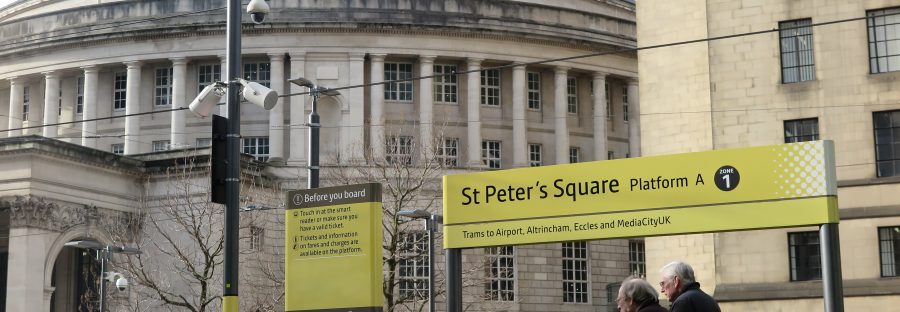Petition for St Peter’s Square to be renamed in memory of Peterloo massacre is a ‘terrible idea’
- Manchester historian Jonathan Schofield dismisses idea
- Petition follows in footsteps of Mike Leigh film starring Maxine Peake
- Public also lack enthusiasm for name change
A petition to rename St Peter’s square in Manchester as Peterloo square has met with a cool reaction from the public.
An e-petition on the city council’s website proposes renaming St Peter’s Square, Peterloo Square to commemorate the infamous Peterloo massacre of 1819, which occurred on the site that is now St Peter’s Square.
The area was once St Peter’s Field and is the subject of a recent Mike Leigh Film.
Manchester journalist and local historian Jonathan Schofield, of Manchester Confidential, however is in now doubt as to its worth.
“I think it’s a terrible idea,” he said.
“It’s a modern knee jerk reaction and is all part of an unnecessary populist move. You might as well rename Exchange Square, ’Olde Town’.
“It’s like the ‘Alan Turing-if-i-cation’ of Manchester, Sure, he was a great scientist, a gay icon and he was badly done by, but do we need to name five buildings after him?
“We are already getting the million pound Jeremy Deller Peterloo monument, do we really need yet more populism?”
Nigel Woodcock, who started the petition. believes it “would serve to commemorate permanently those who were killed or injured, and it would signal Mancunian pride in our history of radical politics and the Labour movement”.

The petition includes the tram stop, which would also change its name.
But commuters and travellers at St Peter’s square tram stop whom the Northern Quota caught up with were non-plussed at best.
“Quite a nice idea,” said Steph from Chorlton, but Steve from Altrincham asked: “How much will it cost?”
His rationale follows contemporary thinkers like Darran Anderson, author of Imaginary Cities, (an exploration of urban development).
In his research Anderson says that much of our sense of identity and belief is wrapped up in signs and symbols.
“Once you decide to name a street after a person or an event, rather than topography, you’ve started something intrinsically political and subjective,” he says.
“When we fail to look at what existed previously and why, we rob ourselves of context and roots.”


